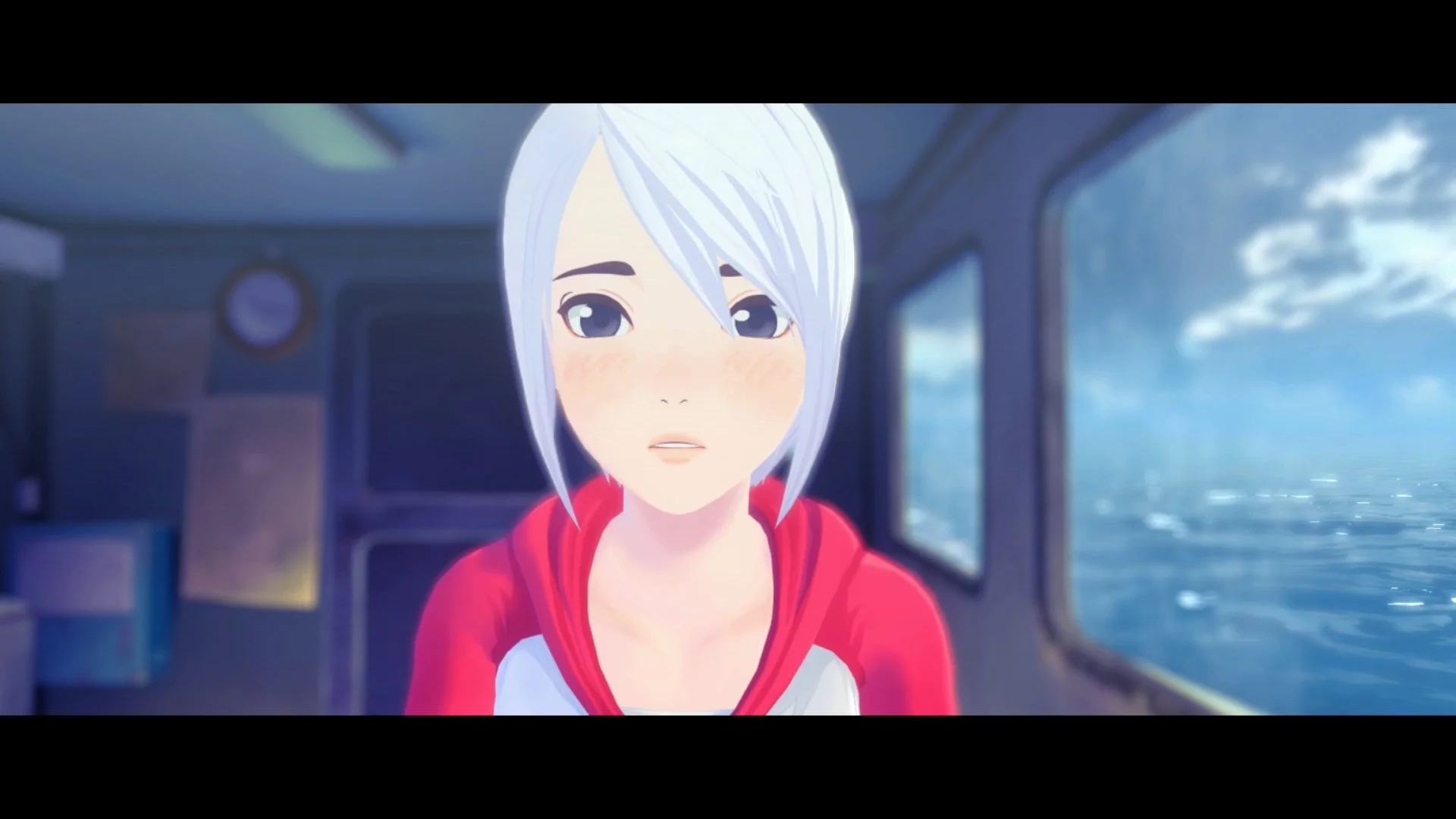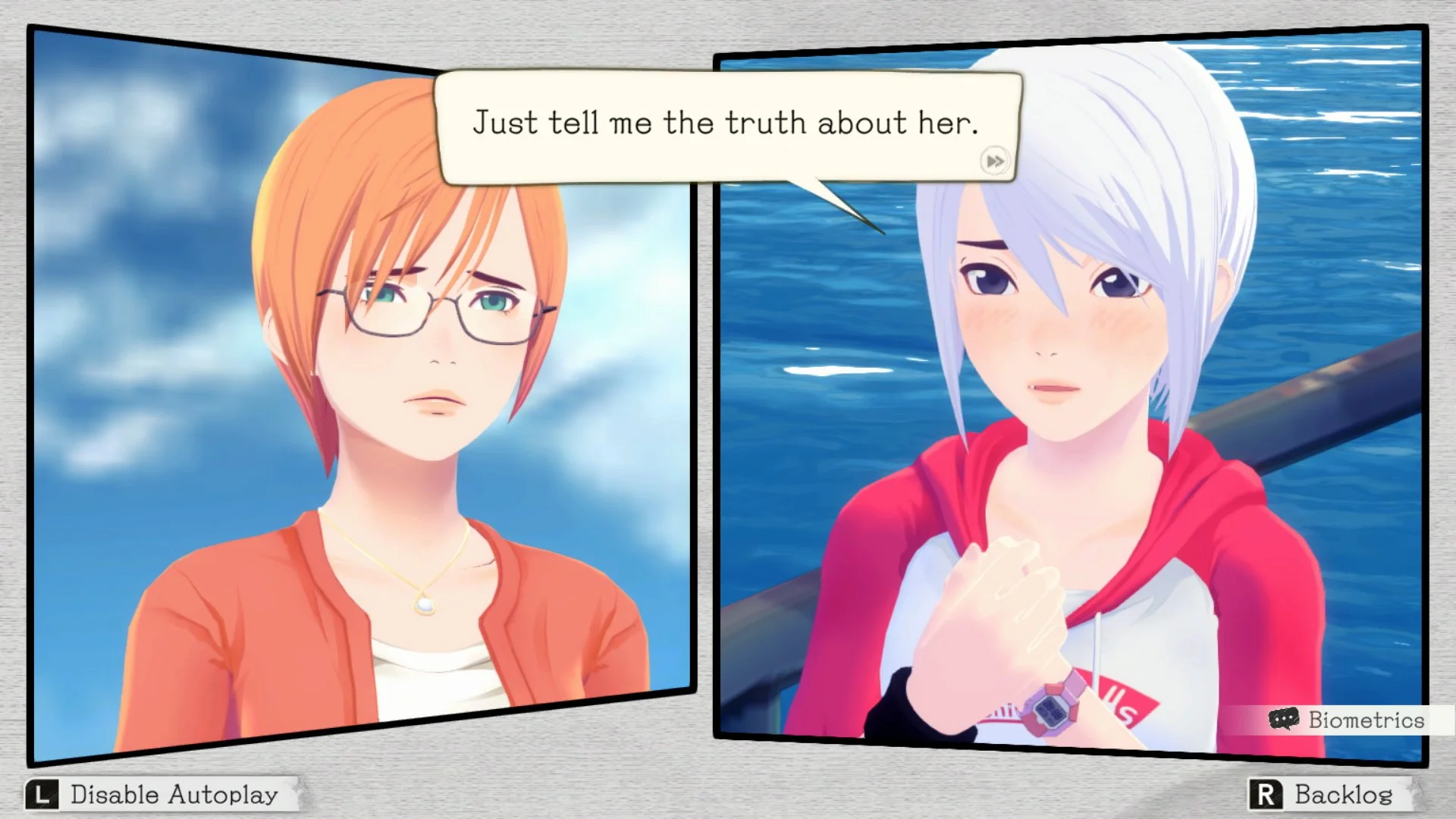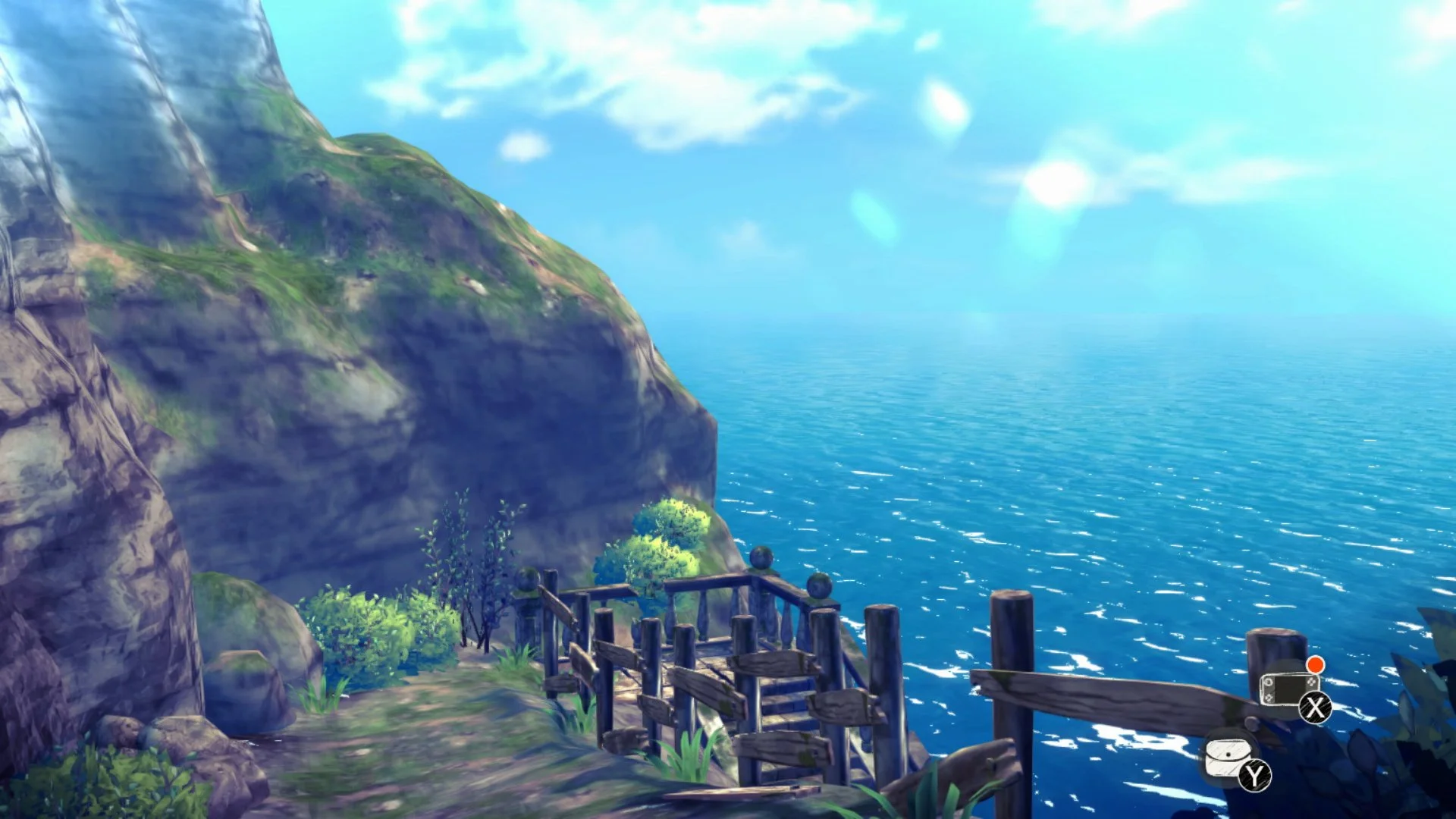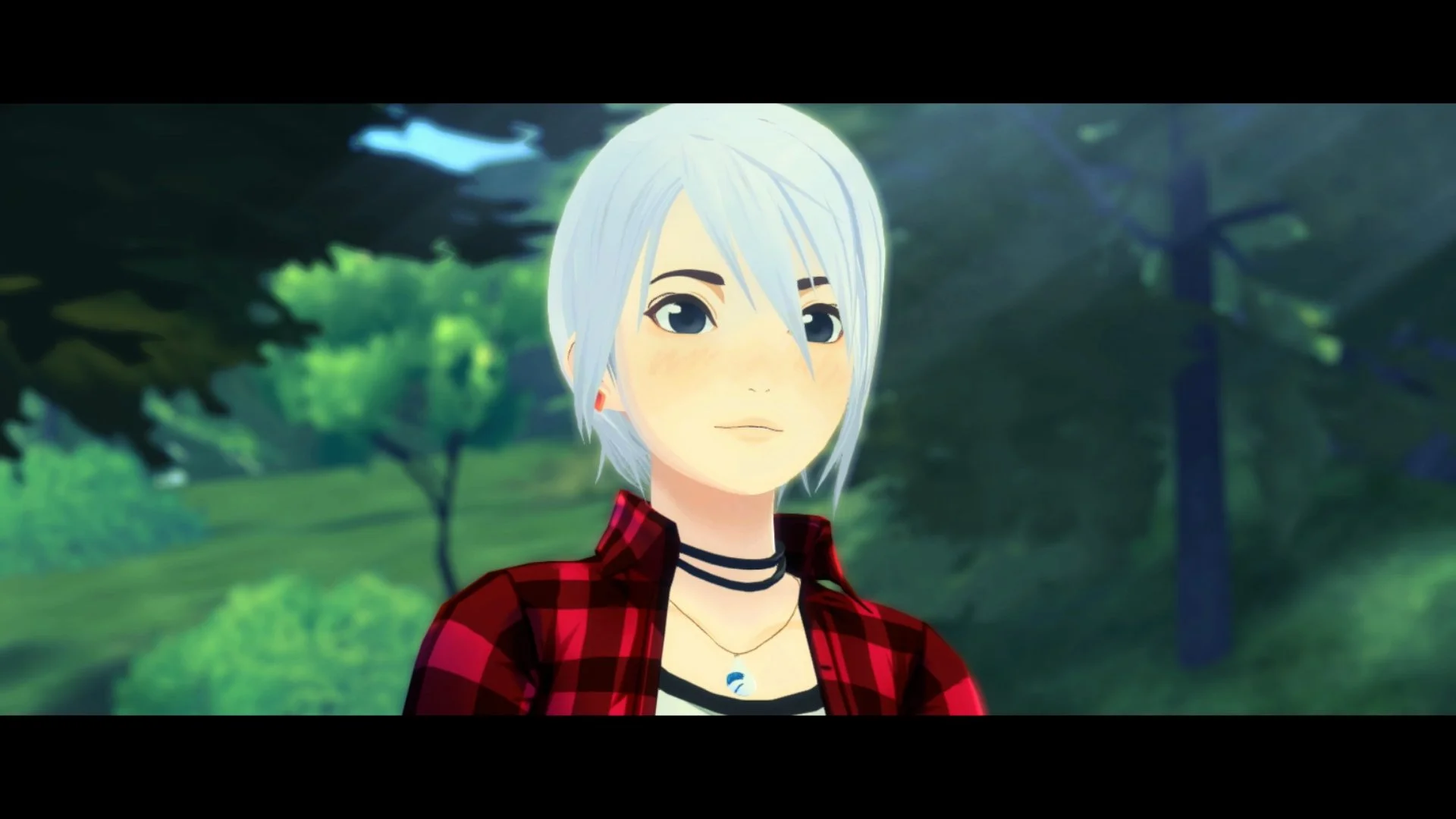Another Code: Recollection Review
“A Trip Down Memory Lane” Written by: Ethan (@ChaoticAether)
I won’t lie to you: I had never heard of Another Code, its Wii sequel or its american counterpart Trace Memory before the reveal of its remake in September of last year. I didn’t really understand the importance of this collection to a lot of people, but I saw its beautiful artstyle and as a fan of adventure games myself, I knew I needed to check it out at release. A demo came out in December, and it honestly wasn’t doing anything for me. It was a slow burn and it had some questionable character performances, but I was willing to wait and give the full game a chance when it was released last week. I’m glad I did.
Another Code: Recollection is a solid adventure game, and a perfect entry point for newcomers into the genre. It blends visual novel storytelling with exploration and puzzle solving to create a rather engaging experience. It’s not without its issues though, as rough pacing, unresponsive controls and a few lacklustre performances led to me having initial teething issues with the first half of this collection. But is it worth overcoming these issues to see what the entirety of the game has to offer? Well let’s start with the game's strongest suit: its story.
Image Credit: Nintendo
Another Code: Recollection is the pairing of both games in the Another Code series: Two Memories and A Journey into Lost Memories into one complete package. Unlike other remake collections in the past, Another Code does not separate the two games on the menu, instead weaving them both into one single storyline played consecutively. In the first game: Two Memories, main protagonist Ashley Mizuki Robbins is thirteen years old, who on the eve of her 14th birthday has travelled to Blood Edward island to reunite with her father who she has presumed to be dead for the past ten years. While exploring the island she meets the ghost of a young boy named D, and the pair work together to bring back D’s memories and reunite Ashley with her missing father. The story is rather basic, and the scope and stakes of the first entry are a lot smaller in comparison to Ashley’s second adventure. This first adventure is also where a majority of the pacing and character performance issues tend to take place.
The first story in the collection is only around four to five hours long in total, yet the story seems to crawl for the first two chapters. It may be due to the majority of the game taking place in a single mansion, but the drip feed of narrative beats throughout these first few hours is honestly rather painful, with any plot twists or story beats being painfully obvious to those who have played any game in the genre before. As for performances, I feel Ashley’s performance starts out slightly wooden, but she quickly improves in quality as the collection goes on. The same can’t be said for the supporting cast in the first entry, as most are adequate at best and comical at worst. They won’t take you out of the story, especially if you have played a Japanese visual novel before, and thankfully most of these issues are gone with the second entry, which is the stronger part in almost every aspect.
The second entry: A Journey into Lost Memories, takes place over two years later, with Ashley now 16 and heading to Lake Juliet to go on a camping trip with her father. In the process, her bag is stolen by a boy, and a mystery revolving around the lake, its inhabitants, and her father’s workplace J.C. Valley begins to unravel. The second entry instantly gave me Life is Strange vibes, with Ashley wanting to be a musician, a continued supernatural tone from the first entry, and the game having a much larger cast of characters when compared to the first entry. It’s also the entry where the performances and narrative really start to shine.
The second game is nearly double the length of the first, taking me around eight to nine hours to beat when solely following the main path. Where this second entry differs the most is the pacing. Journey into Lost Memories provides you with a whole area to explore, filled with people and locations to interact with. What’s great is despite this larger story and scope, the pacing feels so much better than its predecessor. Every chapter feels like it adds something to the mystery, and although the overall story is basic, the characters and performances are really allowed to shine. Ashley is a highlight at this point, and her interactions with her father and the rest of the cast made me really care for them by the time I reached credits. It’s honestly quite surprising how much higher in quality the second game feels in comparison to the first, and despite the first game still having some great story moments, I honestly see the sequel as the main reason to pick up this collection.
Image Credit: Nintendo
Despite the stark contrast in setting and narrative between the two games, one thing Arc System Works has nailed is reimagining the gameplay of both games into one consistent style. Instead of the point and click style of the original games, both games have been reimagined as modern adventure games with puzzle solving elements. This new style involves exploring 3D spaces and solving various puzzles within the environment to progress the story. These spaces differ greatly in size, with the first game using its smaller environment to give puzzles over the entirety of the mansion, and the second game having vast areas with each being a focal point at a different point in the story. All these environments are really well realised, and I never struggled to find where the game wanted me to go next.
As for the game's many puzzles, these range from simple logic puzzles, to collecting and using equipment found throughout the environment, to using your DAS to take photos and using them in various ways. These puzzles get more complex as the games go on, and despite a few terrible uses of motion controls I found most of them to be enjoyable and the control schemes intuitive.
If you ever do get lost or stuck, there are a variety of tools to help you on your journey. The game can supply you with hints that can be toggled in the settings, which have multiple steps of help that range from a small push to solving the puzzle entirely. The game also has a compass that can be toggled from the menu, that surrounds Ashley and points her in the right direction. I personally found this one to be a bit too distracting, and found it to point to puzzle solutions before I even realised there was a puzzle. I personally kept all these features off but it's a nice addition for anyone in need of additional help, and can thankfully be toggled off and on at any time from the menu.
Apart from the occasional puzzle and its world exploration, the rest of Another Code’s gameplay is found in its visual novel elements. These sections are nicely animated and have some great camera work, but other than the ability to choose what order topics of conversation are brought up in and the occasional flavour text, these sections are fairly linear. I should also note that there is no fast forward option for dialogue and some puzzle solutions do change between playthroughs, which might make replaying the game a tad more tedious if you just want to explore and see what the world has to offer. I doubt many of you are looking for replay value from this game, but it’s always good to know!
Image Credit: Nintendo
Another Code Recollection is a visually stunning game. From character models to overall world design, it's all just a joy to take in. The game manages to blend its exploration and puzzle elements with in-environment visual novel sections and they all look fantastic. Characters pop from the background, and bar a few jarring walking animations everything looks excellent. The same goes for the as mentioned before character performances, which bar a few rough patches in the first game are all well done. The only issue I have with the presentation is the over reliance of image flashbacks, which usually consists of simple drawings and voiceover. There is nothing wrong with these in theory, but the overuse of them does tend to wear on you by the end of the second game.
This is all complemented by an excellent soundtrack that really sets the tone of both experiences. The first game balances its eerie atmosphere perfectly, and the second game's more expanded, relaxed soundtrack makes a great accompaniment to the games rural setting and tone. From emotional pieces to goofy theme songs, there’s plenty to love from the game's soundtrack, and I’d encourage you to give it a listen even if you don’t end up picking up the game.
Image Credit: Nintendo
Summary
At the end of the day, Another Code: Recollection is a solid package of two cult classic stories completely remade for a modern audience. The second game is certainly stronger than the first, both in terms of length and in overall quality, but if you can get over the rough first hour or two of the original game there is still plenty to love in both games. Its pacing is a tad sloppy, and its performances may be hit and miss, but its charming world, story and characters made me understand why this series is so beloved by fans of the genre.
If you are a fan of adventure games or its modern day equivalents like Life is Strange, I can’t help but recommend you give Another Code: Recollection a chance. It certainly isn’t a master of the genre, and its simplistic dialogue and overuse of flashbacks may start to irk you by the time you reach its conclusion, but its likeable cast and interesting narrative come together in a game that should easily scratch that adventure game itch.
I honestly have to give props to Nintendo for allowing such a beautifully crafted remake of two very obscure adventure games to be made. No other large publisher would give a series like this another chance, and to see it handled so respectfully is just an awesome thing to see. This also extends to the team at Arc System Works for not only creating a faithful remake, but changing both narrative and gameplay elements to better suit the melding of these two different games to make one cohesive adventure. I doubt we’ll see Ashley again in any new adventures, but the fact that we got this excellent definitive edition of these stories is something I’m sure old and new fans will cherish forever.





